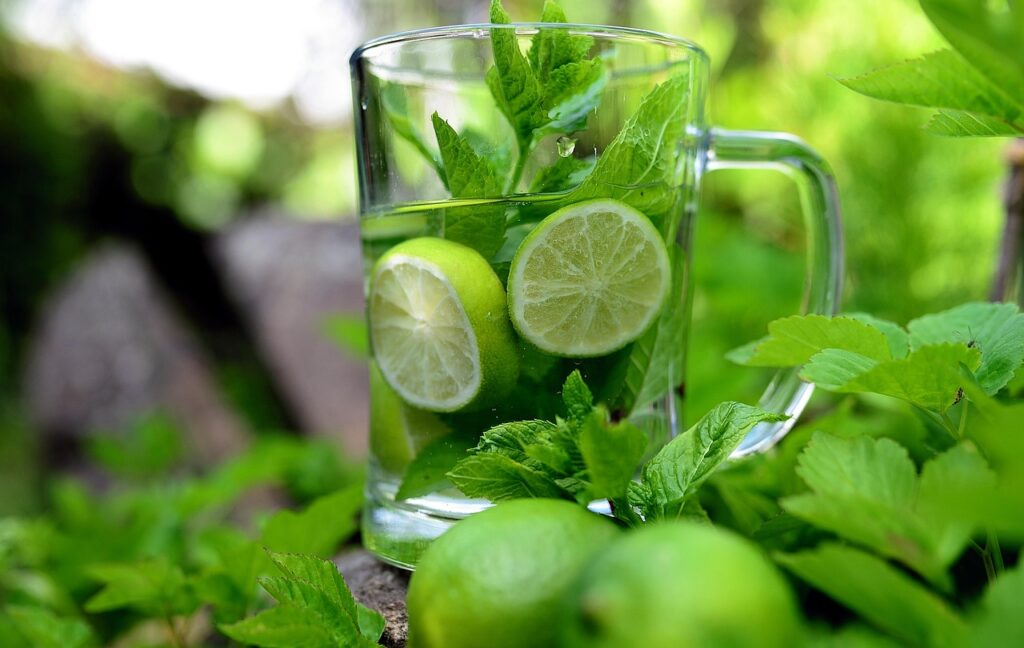In the world of health and wellness, detoxing has become a popular trend. From juice cleanses to detox teas, many people are turning to these methods in hopes of flushing out toxins and improving their health. But with so much information (and misinformation) out there, it can be hard to separate the facts from the myths.
In this blog, we’ll dive into the truth about detoxing, separating the science from the marketing hype. By understanding what detoxing really is and how it affects your body, you can make better decisions for your health and wellness journey.
What is Detoxing?
Detoxing refers to the process of eliminating toxins from your body. Toxins can come from various sources, such as pollution, processed foods, alcohol, and even stress. Your body is naturally equipped to detoxify through organs like the liver, kidneys, skin, and digestive system. These organs work together to break down and remove harmful substances from the body.
While some people believe detoxing involves extreme diets or special products, the reality is that your body has its own built-in mechanisms for detoxification. A healthy lifestyle—balanced nutrition, regular exercise, and sufficient sleep—supports these natural processes and helps your body detox more effectively.
Myth 1: Detoxing Helps You Lose Weight Quickly
Fact: While detoxing can lead to temporary weight loss, it’s not a sustainable or healthy way to lose weight. Many detox diets involve drastic calorie restriction or the elimination of entire food groups, which can lead to short-term weight loss due to water loss and muscle depletion, not fat loss.
-
The truth: Long-term weight loss is best achieved through consistent changes in eating habits, exercise, and lifestyle. Instead of focusing on quick-fix detoxes, prioritize a balanced diet that supports your metabolism and promotes fat burning over time.
-
The takeaway: Detoxes may help shed water weight temporarily, but real, lasting weight loss requires a balanced, sustainable approach.
Myth 2: Detox Teas and Supplements Are Essential for Cleansing Your Body
Fact: The detox tea and supplement industry is a multi-billion-dollar market, but the truth is, your body doesn’t need expensive products to detox. The liver, kidneys, intestines, and sweat glands are all highly effective at removing toxins naturally.
-
The truth: Some detox teas and supplements may have mild laxative or diuretic effects, causing temporary water loss, but they don’t actually “cleanse” your body. Many detox teas can even be harmful if overused, causing dehydration, digestive issues, or electrolyte imbalances.
-
The takeaway: Focus on supporting your body’s natural detox systems rather than relying on products that promise quick fixes. Hydrate well, eat whole foods, and exercise regularly to support your body’s detoxification processes.
Myth 3: Detoxing Clears Your Skin and Improves Your Complexion
Fact: While detoxing may give your skin a temporary glow due to increased hydration or elimination of processed foods, it’s not a cure-all for skin problems. Many skin issues, such as acne, eczema, or rosacea, are linked to genetics, hormones, or environmental factors rather than toxins in the body.
-
The truth: A healthy diet, proper hydration, and skincare routine can improve your complexion more effectively than extreme detox diets. Eating foods rich in antioxidants, healthy fats, and vitamins—such as berries, leafy greens, and omega-3-rich foods—supports your skin’s health.
-
The takeaway: Detoxing may improve your skin temporarily by eliminating processed foods, but sustainable skin health is built on consistent care, good nutrition, and hydration.
Myth 4: Detox Diets Are Safe for Everyone
Fact: Detox diets can be restrictive and potentially dangerous, especially if followed for extended periods of time. Many detox regimens eliminate essential food groups like carbohydrates, fats, or proteins, which can lead to nutrient deficiencies and other health issues.
-
The truth: Short-term detoxes may not be harmful for healthy individuals, but long-term detox diets can slow metabolism, lower energy levels, and disrupt digestion. People with existing health conditions, such as diabetes, kidney disease, or eating disorders, should avoid extreme detox methods without medical supervision.
-
The takeaway: Always approach detox diets with caution and consult a healthcare provider if you have underlying health conditions. Focus on balanced eating and hydration for long-term health benefits.
Myth 5: You Need to Detox Regularly to Stay Healthy
Fact: Your body is naturally capable of detoxifying itself every day. The idea that you need to detox regularly is more of a marketing gimmick than a scientific fact. When you live a healthy lifestyle with proper nutrition, hydration, exercise, and sleep, your body does an excellent job of eliminating toxins without the need for special detox programs.
-
The truth: Unless you’re exposed to high levels of environmental toxins or are dealing with a specific health condition that impairs your detox pathways, your body doesn’t need frequent detoxes. The best way to keep your detox system functioning optimally is to maintain a healthy and balanced lifestyle.
-
The takeaway: Healthy habits—such as a diet high in fruits and vegetables, adequate water intake, regular physical activity, and quality sleep—are the best way to support your body’s natural detox processes every day.
How to Support Your Body’s Natural Detoxification
Instead of turning to extreme detox diets or supplements, here are some simple, effective ways to support your body’s natural detox systems
-
Stay Hydrated: Drinking enough water helps your kidneys filter out toxins more efficiently. Aim for at least 8 glasses (64 ounces) of water a day.
-
Eat a Whole Foods Diet: Focus on nutrient-dense foods like fruits, vegetables, whole grains, legumes, and lean proteins. These foods provide antioxidants, fiber, and other nutrients that support detoxification.
-
Exercise Regularly: Physical activity boosts circulation, helps you sweat (which is another way your body eliminates toxins), and improves overall metabolic function.
-
Get Enough Sleep: Sleep allows your body to repair itself and process waste products. Aim for 7-9 hours of quality sleep each night.
-
Limit Toxin Exposure: Avoid or limit alcohol, tobacco, and environmental toxins like pollution. Choose natural cleaning products, skin care products, and foods free from pesticides and harmful chemicals when possible.
Detoxing Isn’t a Magic Solution
While detoxing has become a buzzword in the health industry, it’s important to separate the myths from the facts. Your body is already equipped with its own detox system, and the best way to support it is by living a balanced and healthy lifestyle. Rather than looking for a quick fix, focus on nourishing your body with whole foods, staying active, hydrating, and getting enough rest.
Remember, true health and wellness come from sustainable habits that support your body’s natural processes—not from short-term detox trends or expensive products. So, embrace the truth about detoxing and focus on long-term health solutions that work for your body.


